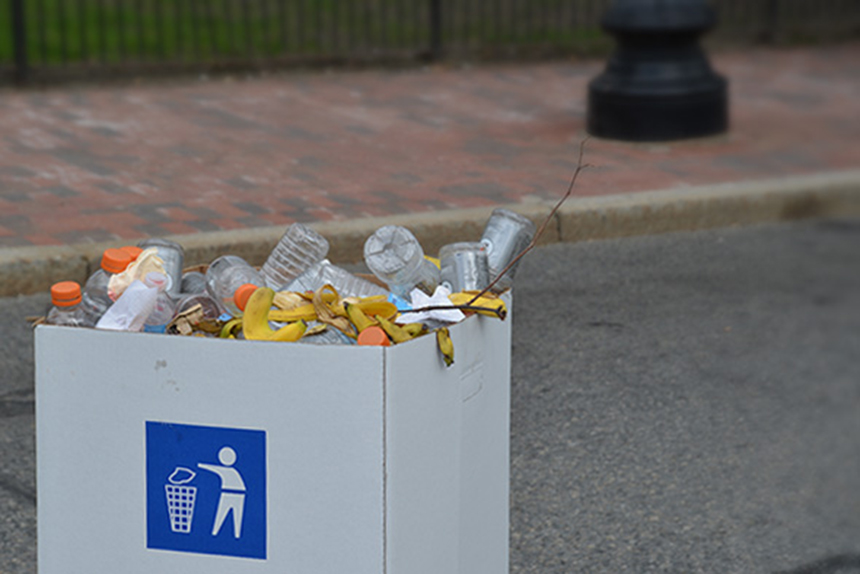Woonsocket Wastewater Treatment Facility Target of Class-Action Lawsuit
August 14, 2023
WOONSOCKET, R.I. — The operators of a Woonsocket wastewater treatment facility are being sued, again.
Last month local residents Maurice Doire and Joshua Hoye filed a class-action lawsuit in Rhode Island District Court against Synagro Woonsocket LLC and Jacobs Engineering Group Inc. over their alleged mismanagement of the wastewater treatment plant and sewage sludge incinerator on the banks of the Blackstone River.
In the complaint, the plaintiffs allege Baltimore-based Synagro and Texas-based Jacobs, which have a history of odor complaints and Rhode Island Department of Environmental Management violations, “have, and continue to, unnecessarily and unreasonably cause noxious odors to be emitted off-site and into Plaintiffs homes and similarly situated neighboring residential properties in Woonsocket.”
The odor emissions from the treatment plant and sludge incinerator persist every day and night, according to Doire and Hoye. In a statement quoted in the complaint, Hoye said the odors he smelled on a daily basis were “like I live across from a large city dump on a 90-degree day.”
The plaintiffs allege the odorous emissions have adversely impacted their property values and prevented them from enjoying the ordinary use of their homes.
If the class definition is approved by a judge, the legal action will be open to any resident living within a mile of the treatment facility and sludge incinerator, at 11 Cumberland Hill Road.
Neither Synagro, which operates the sludge incinerator, or Jacobs, which operates the treatment facility, responded to requests for comment.
The facility is one of the biggest wastewater treatment plants in northern Rhode Island, serving 51,400 customers in Woonsocket, North Smithfield, and the Massachusetts communities of Bellingham and Blackstone. It treats an average of 9.3 million gallons of wastewater daily.
It’s also been partially privatized; the town owns the actual facility, but the day-to-day operations of the plant and sludge incinerator were outsourced to outside companies starting in the 1980s.
It’s not the first time either company has been taken to court over their operation of the Woonsocket facility. In March, DEM and Attorney General Peter Neronha announced they were suing both companies and the city of Woonsocket in Superior Court over numerous violations of the Clean Water Act, the state’s Freshwater Wetlands and Environmental Rights acts, and the impairment of public trust resources.
During a press conference announcing the lawsuit, state officials described the repeated discharges as “amazingly frustrating.”
From March 2022 to March 2023, the wastewater facility was found to be illegally discharging partially treated sewage — also known as effluent — into the Blackstone River three times.
DEM said it inspected the plant 36 times during that 12-month period, and prior to that, the plant racked up 12 citations for violations of its Rhode Island Pollutant Discharge Elimination System (RIPDES) permit. At that time, facility officials told state inspectors the violations stemmed from sand filters or because of extreme weather events.
During an illegal discharge in June 2022, state inspectors visited the plant four times in a week, finding six permit violations and giving its superintendent, following 10 odor complaints from residents, a notice of noncompliance for odors extending beyond the property lines.
A report prepared by the environment consultants Weston & Sampson on behalf of DEM indicated the discharge problems at the plant were institutional, citing a lack of communication and cooperation between Jacobs and Synagro during daily operations, and noted the plant continually ran at or near capacity of its system limits.
A spokesperson for the attorney general said the state’s lawsuit against the operators and the city was still pending.
The Rhode Island Current reported in May the city and its contractors fixed the urgent problems that would have cost the facility its DEM permit, and state inspectors have returned to their usual schedule of inspection every two to three months instead of every day. The City Council also approved an emergency contract for a temporary gravity belt thickener while the plant’s gravity thickener is out of commission for repairs. A gravity belt thickener uses gravity drainage through a filter belt to thicken polymer conditioned sludge prior to digestion, mechanical dewatering, or trucking to a land application site or disposal site.
Categories
Join the Discussion
View CommentsRecent Comments
Leave a Reply
Your support keeps our reporters on the environmental beat.
Reader support is at the core of our nonprofit news model. Together, we can keep the environment in the headlines.
We use cookies to improve your experience and deliver personalized content. View Cookie Settings




Decades old problem. Needs to be repaired permanently!!! I live across the river and smell the foul orders often.
This obnoxious odor problem has been with us well over 30 years. There have been false promises of fixing the issue by all the past administrations. Because I called the odor hotline on behalf of myself and Landmark Medical Center where I worked in Facilities Management so many times, I and others in the nearby community were asked to be part of the Odor Complaint Committee. I went to the meetings and took tours of the plant. Promises were made to resolve the problem and not kept. Think about being a patient at Landmark Medical Center and having to put up with that disgusting smell while being ill.
The legal action against the Woonsocket wastewater treatment facility is certainly a matter of concern. Ensuring the proper treatment of wastewater is critical for the environment and public health. While the lawsuit will determine the extent of any wrongdoing, it highlights the importance of stringent oversight and adherence to environmental regulations in such facilities. Efficient wastewater treatment facilities rely on a range of equipment and technologies to maintain their operations. Peristaltic pumps are one such technology that can play a crucial role in ensuring the precise and controlled movement of fluids within these facilities. Their reliability and accuracy can contribute to effective wastewater treatment processes, helping to prevent issues like those raised in the lawsuit. It is essential for communities to have confidence in the facilities responsible for managing their wastewater, and transparency and accountability are key in achieving this. I hope that the legal proceedings lead to a resolution that not only addresses any concerns but also ensures improved practices and compliance with environmental standards moving forward.